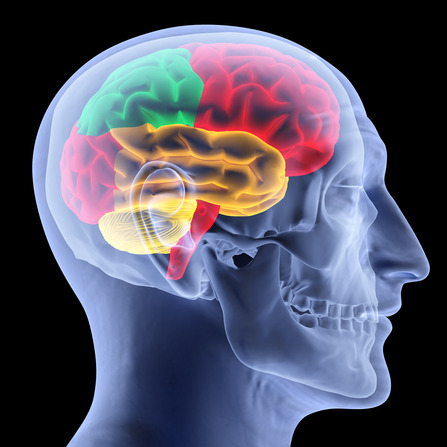The Brain and Heart Health Assessment
It All Starts with the Brain…
By Charles A Evans MD PhD

We invite you to discover how regular brain checkups can detect early signs of cognitive decline. Early detection equals better results. Research demonstrates that early brain health baseline testing can be performed at any age.
The brain is a complex network of nerve cells (neurons). These special cells relay messages between areas of the brain tasked with important functions such as cognition, memory, attention, perception, and emotion, along with processing sensations such as sight, hearing, touch, smell, and taste. When neurons fail to function optimally, the entire network (The Brain), may fail to function normally. Because the brain also signals and regulates the body in many ways, abnormalities that originate within the brain may contribute to, or worsen, physical illness in the body.
The brain signals start as a small burst of neurobioelectrical energy that develops and travels to different regions (lobes) of the brain. Each lobe is associated with specialized functions. The frontal lobe processes the most complex information and is involved in intelligence, personality, abstract thought, long-term planning and setting goals. The parietal lobes process movement and sensation and keep us out of harm. The temporal lobe is probably home for long-term memory and also processes sound, including the interpretation of spoken language. The occipital lobe is responsible for visual processing. A brain wave begins as a small burst in the frontal region, progresses to the temporal, and dissipates from the parietal lobe. Each of these areas has smaller areas that are known as Broadman areas associated with specific functions.
The BIAT (Brain Interface Assessment and Treatment) program is an effective tool for people who currently suffer from noticeable symptoms (e.g., memory problems, attention difficulties, brain fog, sleep dysfunction, cognitive defects). Additionally, it is equally effective in monitoring the health of people who are currently symptom free as an early detection system for age related disease. With the most recent research demonstrating that “the efforts to prevent dementia may need to start as young as 45,” the routine use of BIAT is becoming an integral part of primary care.
The BIAT assessment measures the following attributes:
1) Brain Power, which impacts energy and drive. Loss of power causes fatigue, disturbed sleep and diminished libido.
2) Brain efficiency, which determines the brain’s ability and speed at recognizing and reacting to everyday events. A decline in efficiency may impair memory, learning, the ability to drive a car, work performance or the ability to enjoy life.
3) Cognitive Capacity, which represents the total amount of information the brain is capable of retaining at any given time (short term memory). Weakened capacity may cause an inability to focus and lead to stress, anxiety and low self esteem.
4) Heart Rate Variability (HRV) measurements are linked to anxiety and stress related conditions. Low HRV is linked to cognitive impairment as well as heart disease.
5) Behavioral Attention Measures are an objective measure of attention that are correlated with specific neurotransmitter deficiencies. Reaction Time reflects latency of response and is correlated with serotonin deficiency. Variability reflects a lack of consistent performance and is correlated with dopamine deficiency. Omissions reflect a lack of focus and are correlated with Acetylcholine deficiency. Commissions reflect anxiety and are correlated with GABA deficiency.
The critical element of the BIAT program is brain mapping. Brain mapping is non-invasive and painless. Our clinical team ensures your comfort during the process, which takes about an hour. You will be fitted with a special cap with holes and wires coming from it. A conducting gel is inserted in the holes of the cap corresponding to the Broadman functional areas of the brain. This gel is water soluble, but we suggest that you plan on showering after the test before moving forward with the rest of your day. You will be asked to sit in a quiet room with a computer for about an hour where you will complete three different tasks not dissimilar to simple computer games. Electrodes connect you to a recording devise, but you will not receive any electrical current. You remain completely alert during and after testing.
BIAT is based on the electroencephalogram (EEG), but it samples on many more points for longer durations than a standard EEG. The procedure is FDA approved and reveals critical data about how the brain processes signals. It is a reliable and reproducible evaluation of brain function, revealing the overactive and under active regions of the brain. MRI and CT scans assess only the anatomical aspects of the brain and can complement information obtained by the BIAT program.
Your complex data is transmitted to Evoke Neuroscience’s Systems for analysis. It usually takes 10 days to generate your report. We suggest a follow-up appointment to discuss your results and review your individualized treatment strategy, if any. Most treatments consist of natural nutritional or hormonal supplements that have been shown scientifically to improve your brain function. We may suggest a follow up BIAT scan at 6 and 12 months to track your progress, and then as needed.
This technology allows individuals to measure their brain function and then intervene in a positive way to reach peak mental sharpness, and higher resilience to mental and physical stress. It empowers individuals to take control of their overall health and well being.
CALL US TO START YOUR EVALUATION TODAY
1-936-699-5433
The Institute of Family, Preventive, and Lifestyle Medicine






